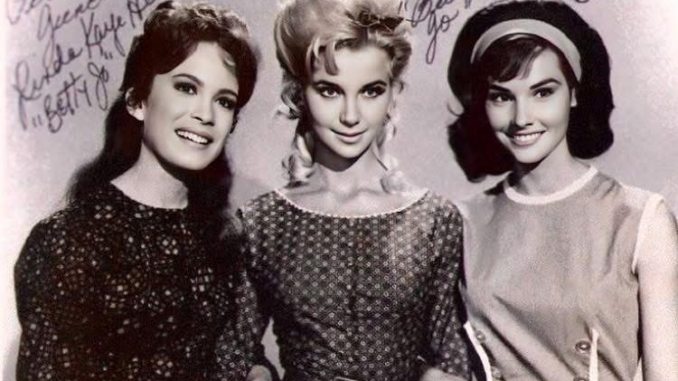
Lucille Ball, the beloved star of I Love Lucy, is known for her groundbreaking work in television, her impeccable comedic timing, and her role as a trailblazer for women in the entertainment industry. However, behind her fame and on-screen persona, Lucille also made bold personal decisions that set her apart from the typical Hollywood stars of her time. One such decision was her refusal to smoke cigarettes that were sponsored by her own show, a move that raised eyebrows in the 1950s but demonstrated her integrity and foresight.
The Context: Cigarette Sponsorships on TV
In the 1950s, television advertising was a booming industry, and many brands saw the medium as an ideal platform to promote their products to a mass audience. Cigarette companies, in particular, capitalized on this opportunity by sponsoring popular television shows. I Love Lucy was no exception. During the height of its popularity, the show was sponsored by Philip Morris, a major cigarette brand, which prominently featured cigarette advertisements during the program.
At the time, smoking was widely accepted in American society, and cigarette companies often used popular television personalities to promote their products. In fact, many stars, including those on I Love Lucy, were required to promote the cigarettes by incorporating them into the show, either by showing the characters smoking on-screen or through direct product placements.
Lucille Ball’s Refusal: A Bold Stance
Despite the fact that she was the face of the Philip Morris campaign, Lucille Ball refused to smoke the cigarettes on the show. While many of her contemporaries didn’t hesitate to light up for their sponsors, Ball’s decision was driven by several key factors, including her personal beliefs, health concerns, and the growing awareness of the dangers of smoking.
Lucille Ball was no stranger to making unconventional choices, and her decision to refuse smoking on I Love Lucy was a clear reflection of her independent nature. She had already proven that she was willing to stand up for her own vision of what I Love Lucy should be, from her creative control of the show to the business decisions she made behind the scenes. Refusing to smoke cigarettes that were being promoted by her own show was yet another example of her willingness to make choices based on personal conviction, rather than what was expected of her by Hollywood.
Health Concerns and the Beginning of Public Awareness
By the 1950s, there was increasing scientific evidence linking smoking to serious health issues, including lung cancer. Though the full extent of the dangers of smoking was not yet universally acknowledged, there were growing whispers in medical circles about its harmful effects. Lucille Ball was keenly aware of these reports and the growing public concern surrounding smoking.
In fact, her decision to refuse smoking the sponsored cigarettes on her show reflected the beginning of a shift in public awareness about the dangers of smoking, a shift that would gain significant momentum in the years to come. Lucille was likely ahead of her time in recognizing the potential harm in endorsing smoking, particularly as a public figure who had a large, impressionable fan base.
Maintaining Professional Integrity
Lucille Ball’s refusal to smoke sponsored cigarettes also speaks to her strong sense of professional integrity. In an era when many stars were happy to promote anything for a paycheck, Lucille stood firm in her belief that her public image should align with her personal values. As a beloved figure who was widely regarded as a role model for both women and men, she wanted to ensure that her character, Lucy Ricardo, represented a positive, healthy image rather than perpetuating the glamorization of smoking.
It’s also important to note that Lucille’s decision was not without consequence. She was likely aware that refusing to fully comply with the sponsorship could have consequences for her career and her relationship with the advertisers. However, her commitment to her principles outweighed the potential financial or professional fallout, showing her dedication to personal integrity over commercial gain.
The Influence of Her Decision
Lucille Ball’s refusal to smoke sponsored cigarettes was not just a personal choice—it was a statement. It was a quiet act of resistance against a culture that was beginning to recognize the harmful effects of smoking, but one that had yet to fully confront the issue. By making this decision, Lucille Ball helped pave the way for future stars to take a stand on issues of public health and personal responsibility, showing that it was possible to balance commercial success with personal convictions.
In the years that followed, more and more public figures began to distance themselves from endorsing products that they felt were harmful or contrary to their personal values. Lucille’s decision to refuse to smoke on I Love Lucy was a precursor to this larger movement, showing that even in a time when smoking was still widely popular, there was room for stars to make responsible choices about the image they projected to the world.
Conclusion
Lucille Ball’s decision to refuse smoking the cigarettes sponsored by I Love Lucy was a bold and thoughtful move that reflected her commitment to personal integrity and her foresight in recognizing the dangers of smoking. In a time when many celebrities were happy to promote anything for a paycheck, Lucille stood apart as a role model who valued her health, her values, and the impact she had on her audience. Her choice is just one of many examples of how she used her platform to make a positive difference, both on-screen and in real life. Lucille Ball’s enduring legacy, built on her wit, charm, and courage, continues to inspire new generations, proving that sometimes, the smallest decisions can have the most lasting impact.
